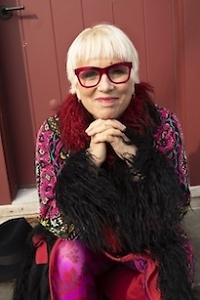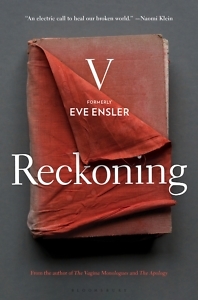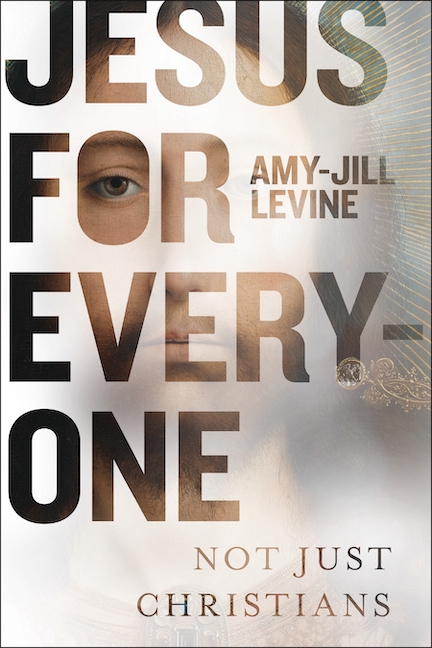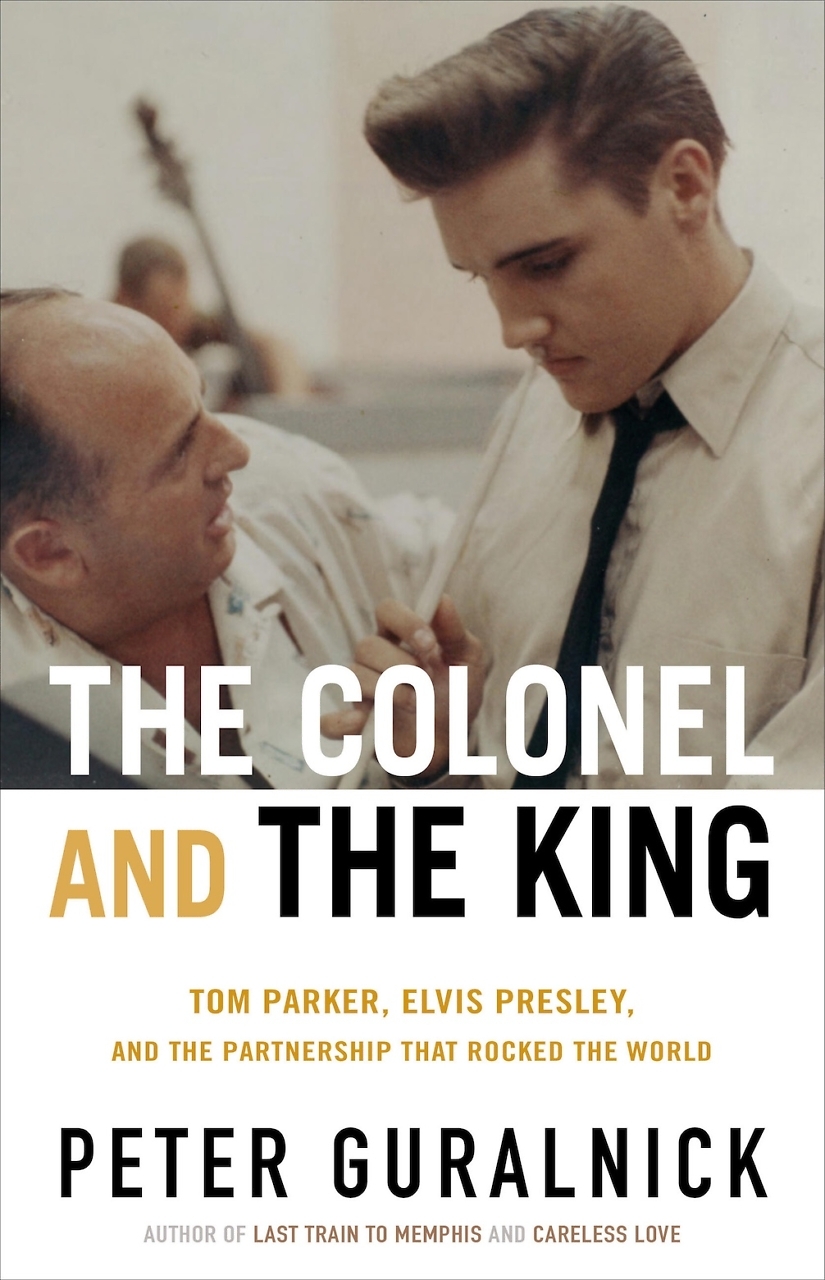A Piercing Wail
Reckoning asks us all to come to terms with women’s experience
FROM THE CHAPTER 16 ARCHIVE: This review originally appeared on January 30. 2023.
***
There’s a line in Reckoning, the latest book by V (formerly Eve Ensler), in which she shares her frustration with getting people to understand what abuse, particularly rape, does to women.

“I have tried it with data and detachment, passion and pleading, existential despair,” writes the author best known for her 1996 play, The Vagina Monologues. She wonders if a language might yet emerge that would “trump a piercing wail.”
Reckoning, a collection of V’s prose and poetry from the past along with new pieces, comes close to that wail. She describes what she has seen in Croatia, in Congo, in the streets of New York City. She tells about seeing a price list for women held in an ISIS sex slave market and about women in Oklahoma City lining up to tell her their rape stories after a performance of The Vagina Monologues.
The details are not easy to read, nor should they be. Among the most common results of rape are fistulas, holes between the vagina and bladder. “A hole made by rape or shoving an instrument inside her vagina. A hole in her body. A hole in her soul. A hole where her confidence, her esteem, her spirit, her light, her urine leak out.”
Fistulas were particularly prevalent in the Congo hospital where V volunteered at the invitation of Dr. Denis Mukwege, a gynecologist who won the Nobel Peace Prize in 2018 for his work caring for victims of what V calls nothing short of “femicide.” They are not, however, the only result of sexual violence. Simple degradation is more common. The ISIS list-priced girls aged 1 to 9 at almost twice the rate of women 20 to 30, while women over 50 had no market value at all. In New York City, V met a woman near death who tried to talk about who she used to be. V’s monologue, “I Was a Funny Person Once,” was inspired by the woman’s story. “I was funny. I wore silk clothes. I read complicated books,” the monologue reads. Now, words hurt. “They remind me that I’m dirty.”
 While V criticizes people who turn a deaf ear to women’s experience, she also understands their reticence. In “Dear White Women,” a piece she wrote in 2018 during Supreme Court Justice Brett Kavanaugh’s confirmation hearings, she addresses women who laughed when Donald Trump mocked Christine Blasey Ford, who alleged that Kavanaugh once assaulted her.
While V criticizes people who turn a deaf ear to women’s experience, she also understands their reticence. In “Dear White Women,” a piece she wrote in 2018 during Supreme Court Justice Brett Kavanaugh’s confirmation hearings, she addresses women who laughed when Donald Trump mocked Christine Blasey Ford, who alleged that Kavanaugh once assaulted her.
“I know the risk many of you take in coming out to say you believe a woman over a man,” she writes. “If one out of three women in the world have been raped or beaten, it means some of you must have had this experience. To believe another woman means having to touch the pain and fear and sorrow and rage of your own experience and sometimes that feels unbearable.”
V doesn’t focus solely on the pain and marginalization of women. A 1991 play, Extraordinary Measures, and several poems tell of men who died during the AIDS crisis. “Suddenly like a massive hole in the cultural ozone, they were gone.” The more recent virus, COVID, led to “disaster patriarchy.” Repurposing Naomi Klein’s phrase “disaster capitalism,” V says the pandemic “unleashed the most severe setback to women’s liberation” in her lifetime, with lockdown creating “a perfect storm for abuse.”
V’s own experience is the inspiration for her work. She says her father raped her repeatedly when she was a little girl and beat her when she was a teen. Her mother, who had no marketable skills and no way to leave V’s father, later admitted “sacrificing” her.
V’s father died before she could reconcile with him. Her 2019 book, The Apology, provides the atonement she never got. She says in Reckoning that writing The Apology — which is imagined in her father’s own words — changed her life, leading to her name change. It also made her think about what might comprise a genuine apology, an “excavation” that “holds the possibility of transformation, of liberation.” A true apology, she writes, should have four steps: an investigation of one’s own history and what led to offensive actions, detailed admission of what was done, empathetic understanding of the person hurt, and taking full responsibility. It is one part of the process of “reckoning.”
Reckoning is ultimately redemptive, despite its painful subject matter. In her final chapter, “V: A Dream Vision of My New Name,” she describes “the V” people of her dreams as humble, non-hierarchical, prophetic. In describing them, she offers up a possibility, even if they seem like a fantasy.
After all, she writes, “The whole world is a story of somebody’s making.”

Jane Marcellus is a writer whose published work includes literary nonfiction, critical analysis, and journalism. Her work was listed as “Notable” in Best American Essays 2018, 2019, and 2020. She is a former professor at Middle Tennessee State University.


